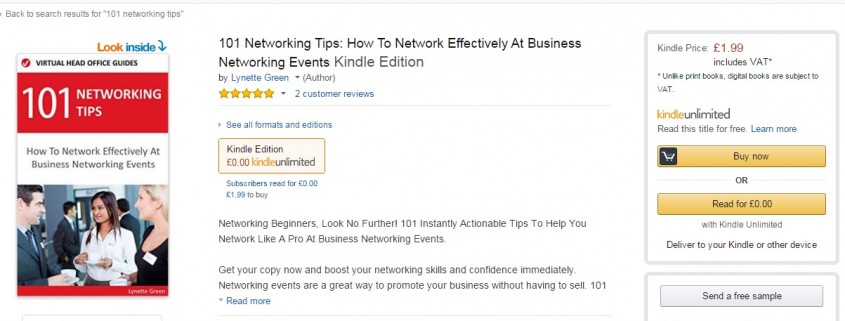Top 5 Skills You Need To Master To Successfully Run Your Business From Home
So you’ve made the decision to run your business from home. Whatever type of business you run there are a number of key skills that you need to master to ensure you stay on top of your work, whilst enjoying the balance of being at home.
Here are the 5 essential skills that you need to master to run your business from home and importantly the steps that you need to take to easily learn these skills, even if you don’t have them already.

1. Great organisation skills.
Getting organised not only helps you get through every day and help it run efficiently, regardless of whether or not you’re feeling motivated, it also makes your day easier.
The first step to getting organised is to ensure you always have a plan in place, every single day of what you need to be doing. Spending just a few minutes at the beginning of every day planning out the things you need to achieve that day, can save hours of time wasted focusing on things that aren’t that important in the scheme of things.

Spending a few minutes at the end of the day as well determining what you need to do the next day will also help your next day get off to a quicker start. Spending 5 minutes at the end of the day thinking about the next day can also help you think if you need to prepare anything for the next day – for example if you have a meeting the next day making sure your outfit is ready the night before and you have everything you need for the meeting, including petrol in the car etc.
Preparing in advance will not only make your next day run smoother, it will also mean that the next day you stay calmer as things are less likely to go wrong if everything is organised beforehand.
2. Good timekeeping.
Strongly linked with general organisation skills, good timekeeping is essential to getting the most from your working day and striking the balance between making sure you work hard enough whilst simultaneously ensuring you don’t work so hard you burn yourself out.
Having a set time to start and finish every day as though you were in an office not only ensures you get started every day and have a time that you know that you need to achieve certain things by is hugely important to your productivity. I’m not saying that you have to work 9 to 5 – find a time that works for you and stick to it.

Within this, you should also factor in time to take your lunch break and other shorter breaks throughout the day. When you are planning out your day, you should also factor in when you are going to have some down time which will help to keep you refreshed to carry on with the rest of your days work. This helps to keep you moving forwards and enables you to perhaps look forward to some of the benefits of home working such as maybe being able to have lunch together with your family or being able to nip out to take the dog for a walk.
You can have all of this so long as you plan this in, it will not interfere with your working day. If you’re also the type of person who enjoys the company of others it’s important to schedule in meeting with friends for coffee, or even arranging time to speak on the phone. This will both prevent you from feeling isolated as well as encouraging friends to call at a time which will not interrupt your work schedule.
3. The ability to avoid distractions.
Running a business from home in some ways is no different to anyone else who works from home in that you are open to a whole range of distractions and temptations that are simply not there when you base yourself from any other location.
The TV, household chores, temptation of snacks in the kitchen, other people in the household. Finding yourself an appropriate work space which contains minimal distractions is crucial. You may be lucky enough to have an office, but equally you may find yourself working at the kitchen table.
Look around your work environment and determine what your key distractions could be. It may not always be something so obvious as the television, it could be that you can see a pile of laundry and that’s making you think about doing that rather than focusing on your work.
It could also be the other people in your household if they are likely to be at home at the same time as you. Make sure that they are aware of your boundaries and understand when you are working and when you are not working.
Also make others aware who may not be in your house, but could potentially call for a chat. It can be difficult for some people to understand that even though you’re at home, you are still actually working, so as well as talking to people to manage their expectations as best as possible.

You will to discipline yourself when it comes to looking at your phone. A simple solution can be to turn off the notifications, so that you are not looking at your phone every time you get a text message or email alert which may break your concentration. You may even want to put your phone inside a drawer so that you can’t see it at all.
4. Good communication skills.
You may think that working from home by yourself you will come into contact with less people, you will therefore be communicating less, but this is not necessarily the case. First and foremost, if you share your home with other people you will need to communicate with those people.
It’s important before you start working from home that you sit down with the people in your household and openly discuss with them the pros and cons for both of you of you working from home. You need to talk openly and honestly about how you working from home will impact on everyone in the house.
For example, if you don’t have an office and want to use the kitchen table as your work space, could someone else want to use this area during the day? Sit down with everyone else who could be impacted, tell them why your business is important and your reasons for wanting to run your business from home.

In turn listen carefully and respectfully to the opinions of all those in the household. It’s important to understand and respect where they are coming from so that you can come up with a win win solution.
Regularly discussing how working from home is panning out for everyone is also a good idea as the last thing you want is a misunderstanding over whose turn it is to use the kitchen table to turn into an argument.
5. Develop self evaluation skills.
When you’re working by yourself there’s no one there to give you feedback during the day, spur you on or tell you how you could have handled something better.
At the end of every day, look back at the day and consider the results you have had compared to what you thought you were going to achieve. Has it panned out how you expected? Better or worse maybe? Look back honestly, and not judgementally look at what has happened during the day.

Is there anything that you could have done better? Consider what you can learn from today so that you implement it tomorrow, after all doing the same thing will get the same results. If you have done something well, it’s important to recognise that too, give yourself a pat on the back and think about some small way that you can reward yourself for doing well.
Running a business from home, is for many people a dream come true. If you’re in this position, make sure you master these 5 skills to continue enjoying your business and lifestyle.














